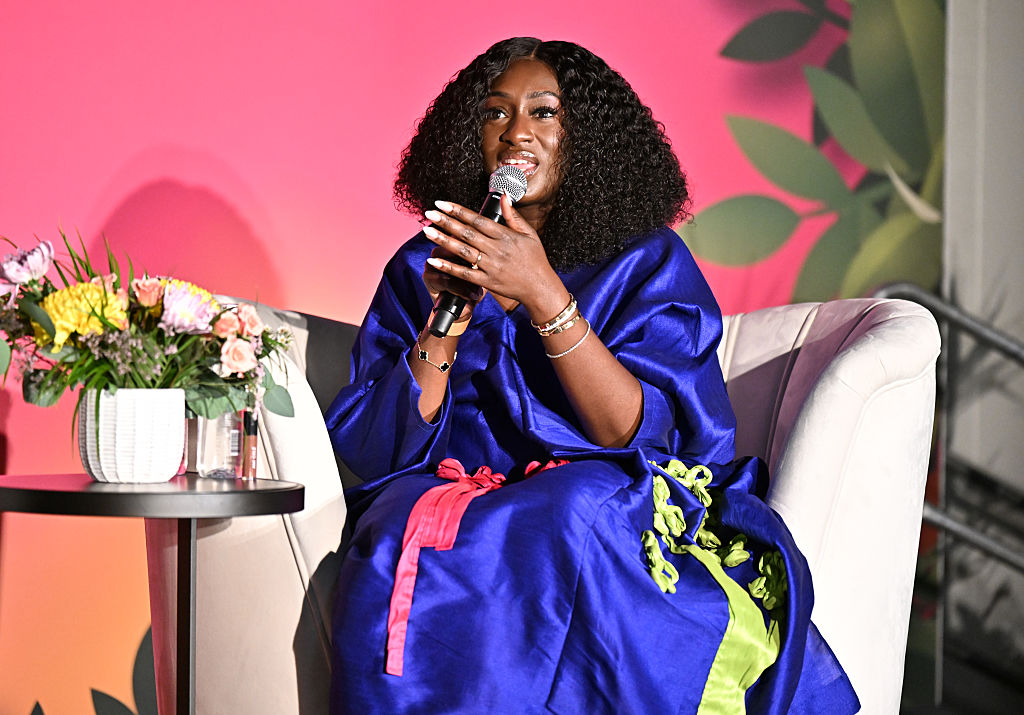When Diarrha N’Diaye-Mbaye announced that Ami Colé would close its doors in September 2025, the reaction across social media was visceral. It wasn’t just that it was the end of a beauty brand, but it felt like the shuttering of something sacred, intentional, and deeply personal to many Black women. While the news left fans scrambling to stock up on their favorite Lip Treatment Oil, it also left behind a quiet ache: If a brand that got so much right couldn’t survive, what does that say about the beauty industry?
But this isn’t a post-mortem. This is a praise song.
Ami Colé didn’t fail. It thrived in the ways that mattered most. The brand was gifted in redefining beauty for melanin-rich skin with precision, elegance, and cultural care. As many reflect on the closure, it’s worth considering not what Ami Colé lacked, but what the industry still hasn’t earned.
A Product Philosophy That Refused to Overwhelm
At a time when beauty brands launch with a dizzying avalanche of SKUs, eyeing mass shelf space and quarterly expansions, Ami Colé chose restraint. The brand debuted with just three meticulously crafted products: a lightweight skin tint, a highlighter balm, and a lip oil that would go on to become one of the most beloved glosses of the decade.
This was minimalism with purpose, not trend. It spoke directly to a generation of Black women who were tired of having to mix foundations, overcompensate with skincare, or settle for second-best. Instead, Ami Colé offered ease. Confidence. Something that worked out of the tube. The intention wasn’t to cover up or glam up, it was to enhance what was already there.
This design philosophy stood in direct contrast to the industry’s obsession with volume. Ami Colé proved that a focused line, grounded in functionality, could resonate more deeply than 50 products fighting for attention.
Beauty That Began With Black Women, Not Just Included Them
Many brands today claim inclusion. Few begin with it. Ami Colé did both and did so without fanfare. The brand didn’t “expand” to deeper shades after feedback or PR crises. It launched from the perspective of women whose undertones, skin textures, and shade complexities had been overlooked for decades.
The skin tint was revolutionary in its quiet genius. It was rich in pigment but whisper-light in texture, designed to complement, not flatten, the golden and olive undertones of Black and brown skin. Shades were curated, not diluted across a spectrum for optics. This was representation without compromise, and it felt radical in its simplicity.
In doing so, Ami Colé refused to ask Black women to adjust to the product. Instead, the product adjusted to them.
Luxury Reimagined Through Cultural Clarity
What set Ami Colé apart from both drugstore and prestige beauty was its clear, centered aesthetic: minimal, modern, and unmistakably grounded in cultural truth. Inspired by N’Diaye-Mbaye’s Senegalese heritage and Harlem upbringing, the brand’s visual identity didn’t rely on clichés or overexplained “diversity” moments. It felt like home. A polished home, yes, but one filled with warmth, not performance.
From the matte tan packaging to the names and textures of the products, there was a softness and richness that elevated everyday routines. The beauty didn’t scream, it whispered. It allowed Black women to exist in luxury without having to translate ourselves to be understood.
At a time when many companies still use Blackness as aesthetic seasoning, dipping in and out when convenient, Ami Colé showed what it looks like to lead with cultural fluency. Not just inclusion, but authorship.
Ingredient Integrity That Didn’t Compromise Performance
Ami Colé’s clean beauty commitment wasn’t a hollow label. It was backed by real formulation care, plant-based ingredients like baobab seed, hibiscus, and pumpkin extract that nourished as much as they enhanced. The brand was vegan, fragrance-free, and hypoallergenic, while still delivering that coveted glow.
What made this especially meaningful was how rare that combo is for darker skin tones. Clean beauty has historically ignored melanin-rich needs, treating “natural” as synonymous with pale, pink undertones and Eurocentric minimalism. Ami Colé reclaimed the space, reminding the industry that health-conscious, high-performance beauty could center Black women, too.
Leadership Rooted in Transparency and Care
When Diarrha N’Diaye-Mbaye published her farewell letter in The Cut, she didn’t sugarcoat the complexities of closing. She spoke of exhaustion, team dynamics, the weight of representation, and most notably, of grace.
“We are choosing peace,” she wrote. “We are choosing softness and honesty.”
That vulnerability struck a chord. In an industry driven by branding bravado and constant “scale or die” pressures, her voice stood out. It reminded readers that stepping away isn’t failure. Sometimes it’s the most courageous and protective thing a founder can do, for herself, for her team, for her community.
Society doesn’t often get to see Black women close things on their own terms. In that, Ami Colé left its supporters with one final lesson in sovereignty.
The Legacy Outlives the Brand
Ami Colé’s closure is a loss, yes, but also a mirror. It reflects what so many Black-owned brands face: a system that celebrates diversity in press releases but underfunds it in practice. A consumer culture that wants representation but not always sustainability. An industry that hasn’t yet evolved to value brands that build slowly, mindfully, and for its people.
But while the brand might fade from consumers’ vanities, its legacy remains etched in the blueprint it laid down. It taught people what was possible. It made Black beauty feel soft, intentional, and entirely for Black people.
